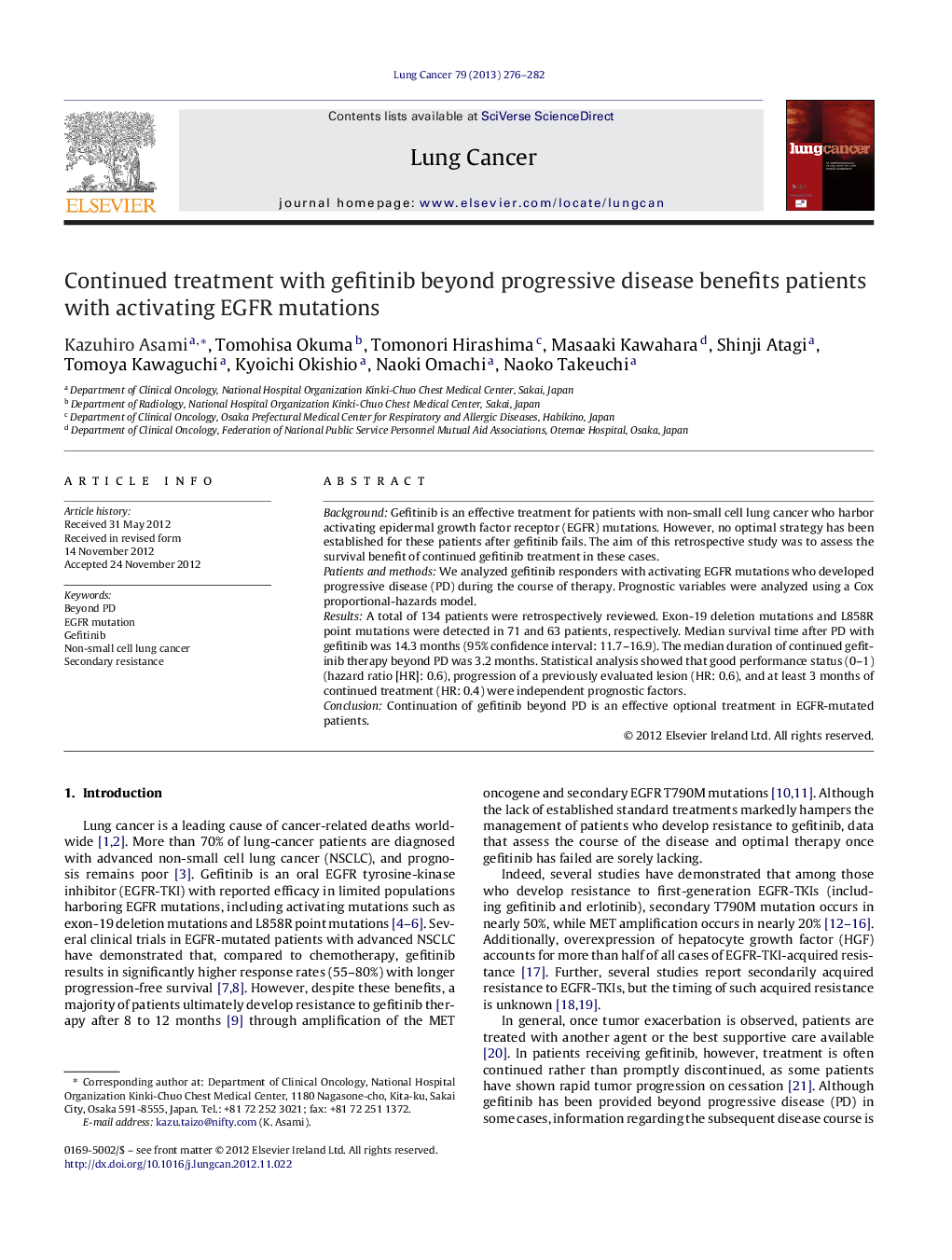| Article ID | Journal | Published Year | Pages | File Type |
|---|---|---|---|---|
| 2141162 | Lung Cancer | 2013 | 7 Pages |
BackgroundGefitinib is an effective treatment for patients with non-small cell lung cancer who harbor activating epidermal growth factor receptor (EGFR) mutations. However, no optimal strategy has been established for these patients after gefitinib fails. The aim of this retrospective study was to assess the survival benefit of continued gefitinib treatment in these cases.Patients and methodsWe analyzed gefitinib responders with activating EGFR mutations who developed progressive disease (PD) during the course of therapy. Prognostic variables were analyzed using a Cox proportional-hazards model.ResultsA total of 134 patients were retrospectively reviewed. Exon-19 deletion mutations and L858R point mutations were detected in 71 and 63 patients, respectively. Median survival time after PD with gefitinib was 14.3 months (95% confidence interval: 11.7–16.9). The median duration of continued gefitinib therapy beyond PD was 3.2 months. Statistical analysis showed that good performance status (0–1) (hazard ratio [HR]: 0.6), progression of a previously evaluated lesion (HR: 0.6), and at least 3 months of continued treatment (HR: 0.4) were independent prognostic factors.ConclusionContinuation of gefitinib beyond PD is an effective optional treatment in EGFR-mutated patients.
